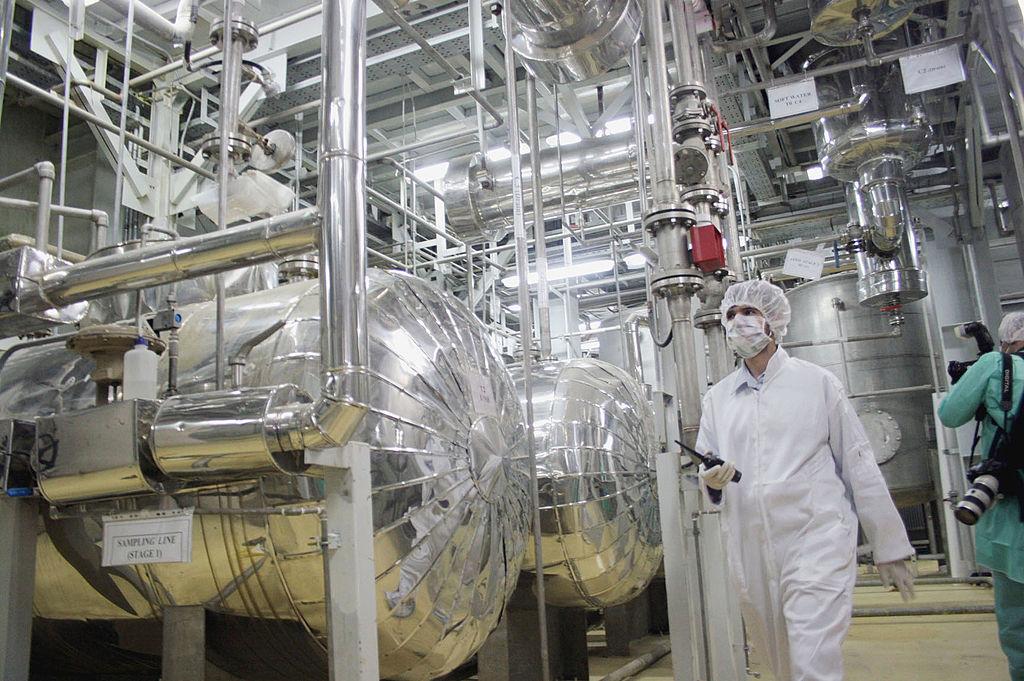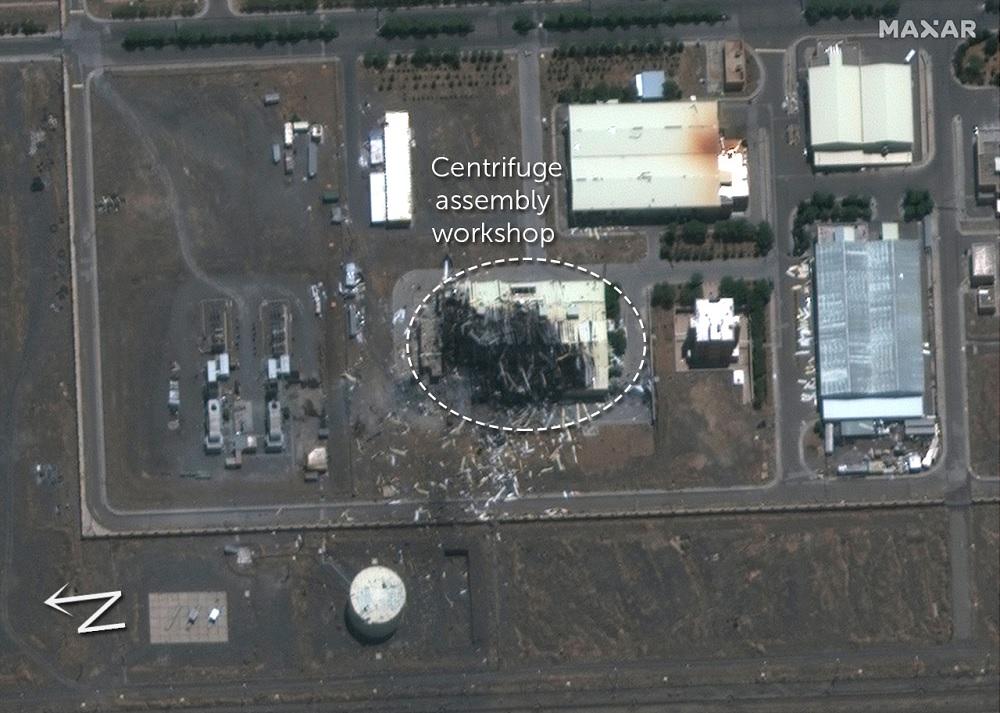
It seems increasingly likely that the 2 July explosion at the Iran Centrifuge Assembly Centre, located near the Natanz Pilot Fuel Enrichment Plant, was the result of sabotage. And, despite initial speculation that it was the result of a cyberattack against critical operational control systems—and thus of a similar vein to the Stuxnet attack that took down multiple centrifuge cascades at Natanz in 2010—the simpler and more plausible explanation is that the explosion was caused by a bomb.
Despite claims of responsibility by a previously unknown group calling itself the Homeland Cheetahs that supposedly comprises disgruntled Iranian former military and security services personnel, it now appears widely accepted that Israel was behind the attack. There has been further speculation that Israel was also behind other curious incidents that have occurred at Iranian facilities in recent weeks—including explosions at the gas storage area near the Khojir missile facility at Parchin, at a medical facility in Tehran, and at a factory south of Tehran—although there is as yet no evidence of foul play in these events.
Multiple media outlets—including the New York Times and the Washington Post—have referenced intelligence officials attributing the Natanz attack to Israel. And while Tehran was slow in apportioning blame, on 7 July it accused Israel of being behind the attack, saying it was ‘a “wake-up call” meant to deter Iran amid advancements in its nuclear program, and … [that] those who planted the explosives had significant insight into the country’s nuclear program’.

Satellite image taken on 8 July of the blast site at the Natanz Pilot Fuel Enrichment Plant.
Source: Nathan Ruser/Maxar Technologies.
Israel has form in using lethal force against high-value nuclear targets in the Middle East. Between 2010 and 2012, Israeli agents murdered four Iranian nuclear scientists. Earlier, Israel launched military strikes that destroyed the Iraqi nuclear reactor at Osirak in 1981 and the Syrian Al Kibar reactor in 2007, the two most obvious manifestations of the Begin doctrine, which stipulates that Israel cannot allow any of its regional adversaries to develop a nuclear weapons capability.
However, two key issues remain unresolved. First, it’s not clear that the explosion at the centrifuge assembly centre will be a significant a setback for Iran’s enrichment capabilities. Second, if it is accepted that Israel was behind the incident, it’s difficult to assess whether the Natanz attack was merely a warning to Tehran or represents a new stage in Israeli efforts to curtail Tehran’s nuclear program. It’s possible that the attacks were also intended to provoke a reaction from Tehran that would justify more punitive and definitive military strikes against Iranian nuclear facilities by either Israel or the US.
On the first question, the assembly centre is a critical element of Iran’s capacity to build more advanced centrifuges for its uranium-enrichment program. According to the Institute for Science and International Security, the workshop was ‘dedicated to assembling, on a production-scale, advanced centrifuge rotors, bellows, end caps, and other key subcomponents’ for Iran’s enrichment program.
Imagery published by the institute shows significant damage to the facility, including structural damage, likely rendering the facility and all the equipment within it inoperable. Following the explosion, Tehran admitted that the site contained advanced equipment and precision measuring devices that were either destroyed or damaged, and conceded that the incident will slow down the development and expansion of advanced centrifuges.
Nevertheless, the broader impact of this attack on Iran’s enrichment capabilities may be limited and may do little more than delay Tehran bringing online more advanced centrifuge designs. Some analysts have estimated that the explosion at Natanz will set back Iran’s nuclear program by more than a year, whereas others concluded that the explosion would have little immediate effect on Iran’s two existing uranium-enrichment facilities.
Others have concluded that the attack may do little more than encourage Iran to carry out nuclear-related activities in secret rather than in publicly declared facilities subject to inspection by the International Atomic Energy Agency. As noted by Jeffrey Lewis, the director of the East Asia Proliferation Project at the Middleborough Institute of International Studies, ‘You can set them back a few months, but is it really worth it if you don’t have a plan for solving the nuclear problem during those few months?’
The timing of the Natanz incident is also noteworthy, given it occurred less than a month after the release of the latest IAEA report on Iran’s nuclear program. The report confirmed that Iran had further increased its stockpile of low-enriched uranium from around 1,050 kilograms to more than 1,500 kilograms during the reporting period. The IAEA also noted its concern that Tehran was continuing to deny inspectors complementary access under its additional protocol to two locations of proliferation concern and failing to respond to questions on possible undeclared nuclear material and nuclear-related activities.
The incident at Natanz clearly appears to have been a targeted attack by Israel on a key, but not critical, component of Iran’s nuclear program. If Israel wants to conclusively stop Iran’s nuclear activities, in accordance with the Begin doctrine, it is highly unlikely that decision-makers will assess the damage wrought at Natanz as sufficient to do the job, especially given growing concerns about Iran’s success in shortening the breakout time for realising a nuclear weapons capability.
Importantly, it’s highly likely that Israel also thinks that it’s well past the time to be issuing warnings. So, the Natanz attack may plausibly be but one part of a broader Israeli strategy with a more serious end goal in mind. But the clock is ticking if Israel is seeking to definitively resolve the thorny question of Iran’s nuclear ambitions before the US presidential election in November. If it is, then we’re likely to see more attacks on sensitive Iranian facilities in the weeks ahead.